Corpus Christi Blog
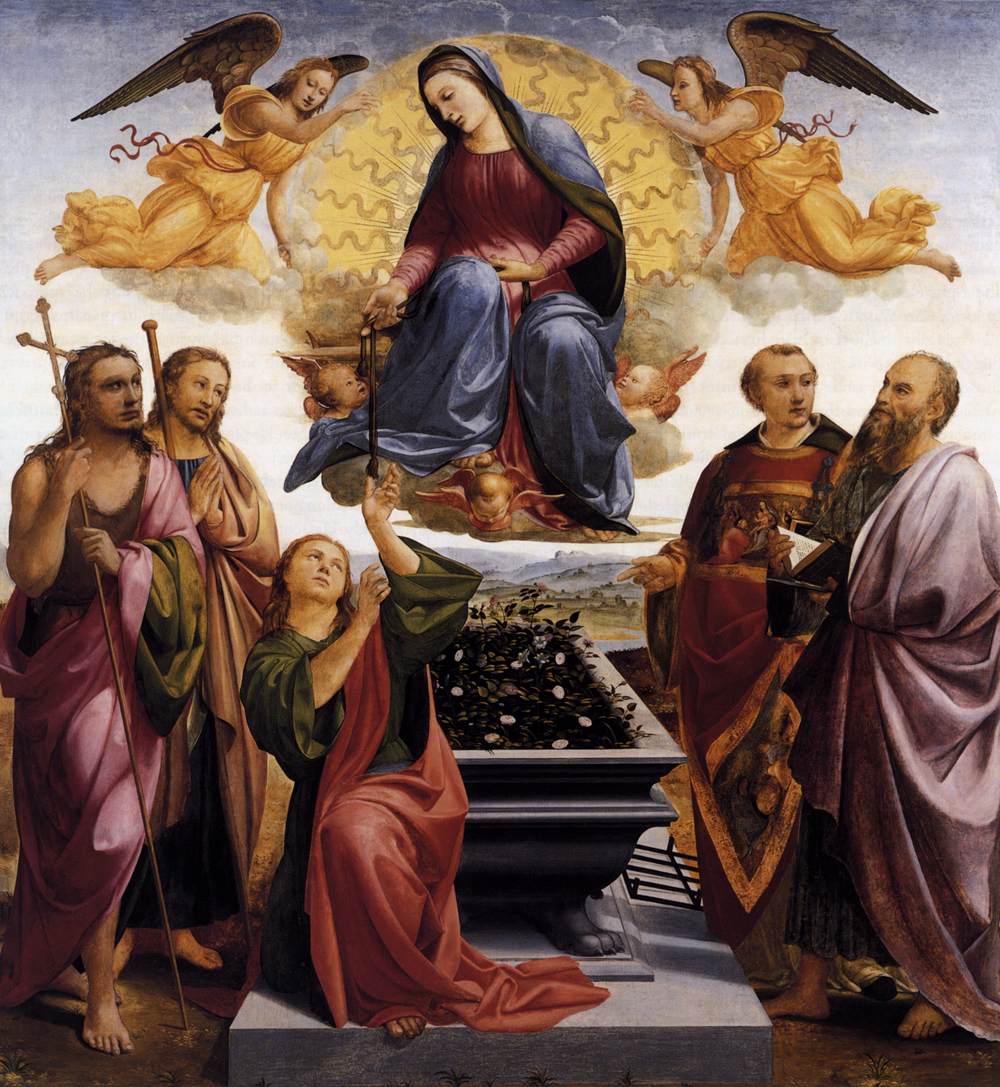
The Assumption of Mary
09-27-2020Weekly ReflectionJen Arnold, M.A. in Theology and CatecheticsWe have now reached the fourth and final Marian Dogma as defined and taught by the Magisterium of the Catholic Church – the Assumption of Mary. In a sense, the Assumption is the natural culmination of the previous three dogmas. If you accept, as the Church teaches, that Mary is the Mother of God, that she kept her virginal purity and integrity intact, and that she is the Immaculate Conception, the dogma on the Assumption is nothing less than fitting.
On November 1, 1950, Pope Pius XII proclaimed the fourth Marian dogma in his document Munificentissimus Deus. In this document, Pope Pius says, “We pronounce, declare, and define it to be a divinely revealed dogma that the Immaculate Mother of God, the ever-virgin Mary, having completed the course of her earthly life, was assumed, body and soul, into heavenly glory.” In other words, Mary is currently enjoying her bodily resurrection in heaven with Jesus, which is what we all look forward to one day. As with the dogma of the Immaculate Conception, Pope Pius refers to Genesis 3:15 as part of the foundation for the Assumption. In Genesis, Satan and his seed are put in direct opposition to the woman and her seed. Again, if Satan brings about sin and death, then to be in direct opposition to that necessarily means no sin and no death. Mary and Jesus must triumph over death.
READ MORE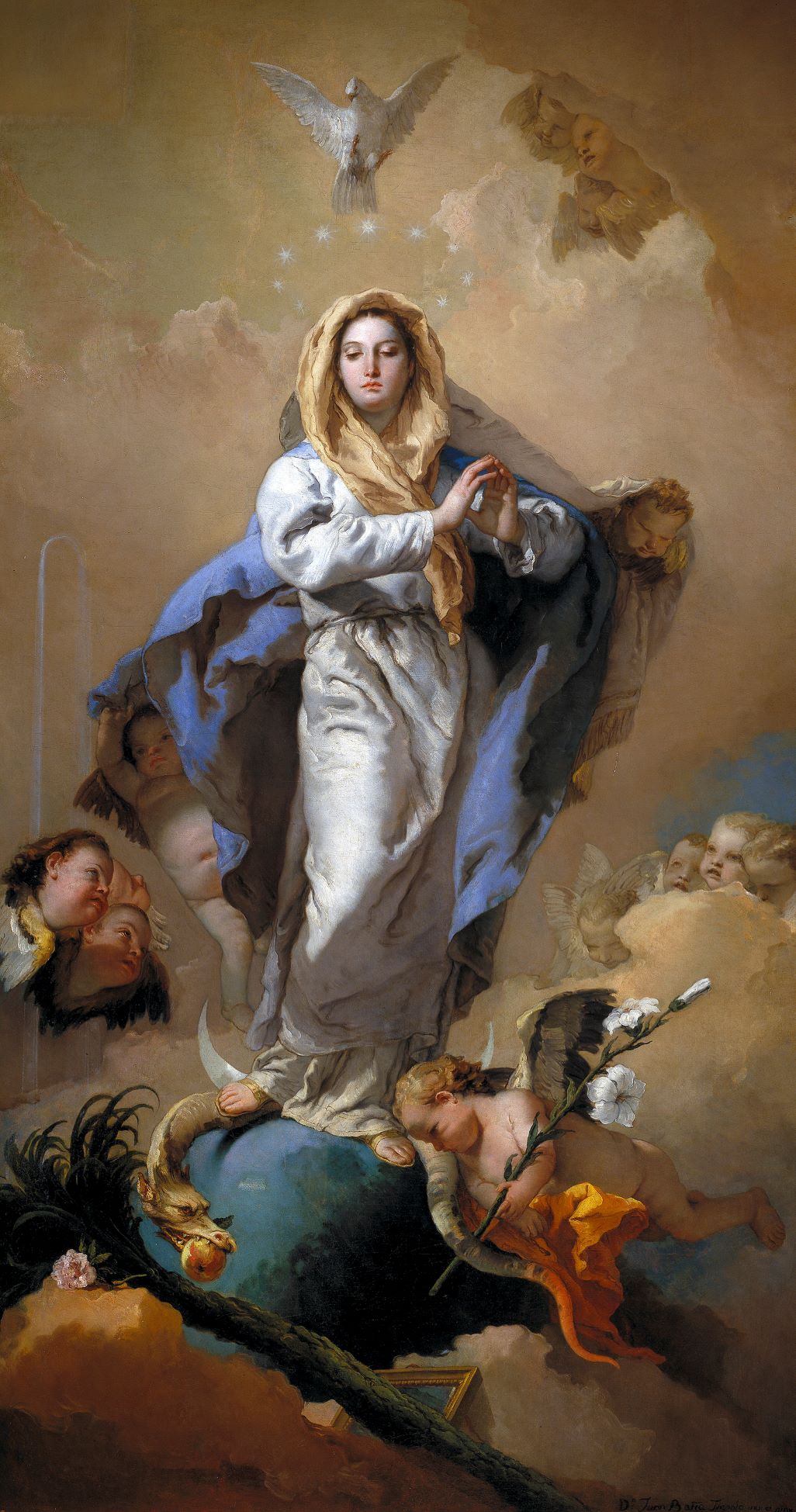
The Immaculate Conception
09-20-2020Weekly ReflectionJen Arnold, M.A. in Theology and CatecheticsI hope you are enjoying this Marian series. This week we continue our in-depth look at what the Church teaches about Mary as we dive into the dogma of the Immaculate Conception.
Typically, we would start by explaining what we mean by Immaculate Conception. In this case though, we must first settle on what it is not. It is not uncommon for people to think the Immaculate Conception refers to the conception of Jesus Christ in Mary’s womb by the Holy Spirit. That was certainly a miraculous conception, but it is not what we mean by the Immaculate Conception. By means of the Magisterium, on December 8, 1854, Pope Pius IX gave us a very succinct and meaty definition of the Immaculate Conception in his apostolic constitution entitled Ineffabilis Deus which reads:
READ MORE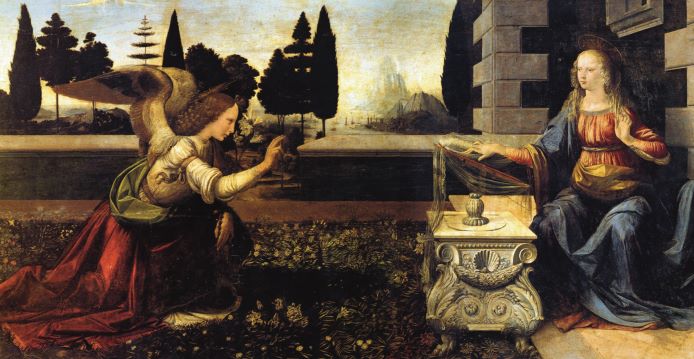
Mary's Perpetual Virginity
09-10-2020Weekly ReflectionJen Arnold, M.A. in Theology and CatecheticsThis week, we’ll take a closer look at the second Marian Dogma declared by the Magisterium, which is Mary’s perpetual, or three-fold, virginity. This dogma was confirmed at the Second Council of Constantinople in 553 AD and then later pronounced by Pope Martin I at the First Lateran Council in 640 AD. By three-fold virginity, we mean that Mary was a virgin before the birth of Jesus, during the birth of Jesus, and after the birth of Jesus. I will explain what each of those mean in more detail and clarify some common questions.
To start, Mary was a virgin before she conceived and bore Jesus. This is something all Christian religions agree on and is not much of a hurdle to get across. We look to Tradition for our first source of authenticity on this matter. The Apostles’ Creed, which was developed in the very early Church, proclaims, we believe in Jesus “…who was conceived by the Holy Spirit, born of the Virgin Mary…” This shows that even the earliest Christians understood the Savior to be born of a virgin. We can also look to Scripture for the foundations of this belief. Isaiah 7:14 tells us, “Behold, the virgin shall conceive and bear a son, and shall call his name Immanuel.” Then, after the Angel Gabriel appears to Mary to tell her she will conceive and bear a son, her response is, “How will this be, since I do not know man?” (Luke 1:34). Here, she is alluding to her virginity. She is not doubting the word of the angel, but merely asking how it will come about since it will not be in the natural way. Gabriel explains that the Holy Spirit will descend upon her in order for the conception to occur. So, between both Tradition and Scripture, it is not a far leap for Christians to agree on the state of Mary’s virginity before the birth of Christ.
READ MORE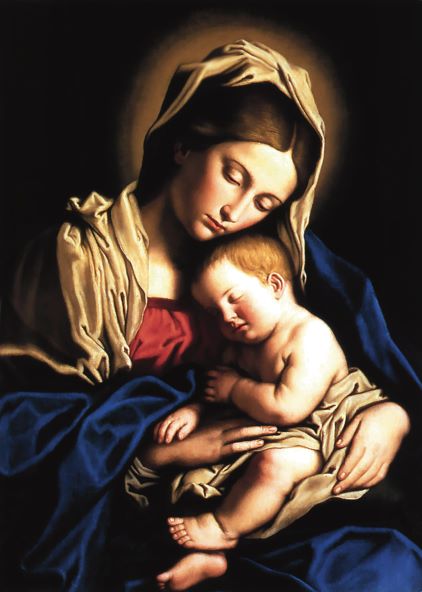
Theotokos
09-06-2020Weekly ReflectionJen Arnold, M.A. in Theology and CatecheticsToday, I begin a five-part series on the four Marian dogmas and the fifth Marian doctrine as defined by the Catholic Church. First, though, we should deal with how we define the terms doctrine and dogma. Doctrine refers to a teaching from the Magisterium pertaining to faith and morals that has been determined to be theologically true and certain. As Catholics, we are called to give our assent to any teaching the Magisterium has declared to be doctrine. Dogma, however, is an elevated truth that has been certainly revealed by God and is to be believed. This does not make a doctrine any less true than a dogma or that we should not give our assent to doctrine, rather, it simply highlights some things as worthy of understanding at a higher level. A doctrine can actually become a dogma in one of two ways. One way is for an Ecumenical Council to discuss the matter, come to an agreement on elevating the doctrine, and then have it confirmed by the Holy Father. The second way is for the Holy Father to make an “ex-cathedra,” or infallible, a statement on the matter himself. A doctrine may be further developed as more truth is revealed (though it can never change). Dogma cannot be changed, as it is the fullness of truth as revealed by God. Today, I begin a five-part series on the four Marian dogmas and the fifth Marian doctrine as defined by the Catholic Church. First, though, we should deal with how we define the terms doctrine and dogma. Doctrine refers to a teaching from the Magisterium pertaining to faith and morals that has been determined to be theologically true and certain. As Catholics, we are called to give our assent to any teaching the Magisterium has declared to be doctrine. Dogma, however, is an elevated truth that has been certainly revealed by God and is to be believed. This does not make a doctrine any less true than a dogma or that we should not give our assent to doctrine, rather, it simply highlights some things as worthy of understanding at a higher level. A doctrine can actually become a dogma in one of two ways. One way is for an Ecumenical Council to discuss the matter, come to an agreement on elevating the doctrine, and then have it confirmed by the Holy Father. The second way is for the Holy Father to make an “ex-cathedra,” or infallible, a statement on the matter himself. A doctrine may be further developed as more truth is revealed (though it can never change). Dogma cannot be changed, as it is the fullness of truth as revealed by God.
READ MORE
Social Communication
08-30-2020Weekly ReflectionJen Arnold, M.A. in Theology and CatecheticsLast week, I discussed the three sources of authority in the Catholic Church. One of them is the Magisterium, the teaching office of the Church, where our leaders gather to discuss issues the Church is facing and issue decrees on how the Church should address them. You have no doubt heard of the Second Vatican Council, which was called to order by Pope St. John XXIII in 1962 and closed by his successor Pope St. Paul VI in 1965. During this time, thousands of bishops and cardinals gathered to discuss the emerging pastoral needs of the Church at the time. Numerous new decrees came out of this Council which apply to our Faith today. There is a book that contains the entire collection of documents to come from the Second Vatican Council, but it is over 1,000 pages and it is not necessarily the most interesting to read. However, if you are ever curious enough to look at a particular topic, all of the documents are readily available online. I have selected one to summarize in order to illustrate how we learn official Church teaching on a particular matter, via the Magisterium.
READ MORE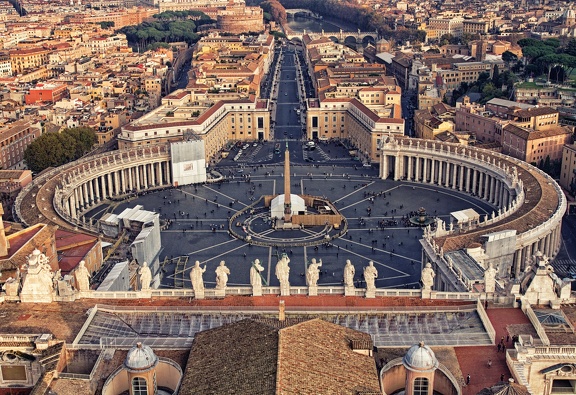
The Three Sources of Church Authority
08-19-2020Weekly ReflectionJen Arnold, M.A. in Theology and CatecheticsYou have probably heard the phrase “sola scriptura,” which is used by many Protestant religions to describe their authority as coming from Scripture alone. Martin Luther originally defined the doctrine of using Scripture as the sole source of theological authority in the midst of frustrations with things happening within the Church’s hierarchy during the Protestant Reformation. To this day, the source of authority remains one of the defining differences between the Catholic faith and many other Christian denominations. Today, we’ll take a look at the Catholic Church’s three sources of authority – Scripture, Tradition, and the Magisterium – and why we hold all three to be equal sources in the passing on of the Faith.
Scripture
Catholics absolutely believe in and respect the authority of Sacred Scripture. We believe that, from cover to cover, it is the inspired Word of God. Humans communicate with language and God, therefore, communicates with us in language. Everything contained in Scripture is known to be true, beautiful, and good. “For this reason, the Church has always venerated the Scriptures as she venerates the Lord’s Body. She never ceases to present to the faithful the bread of life, taken from the one table of God’s Word and Christ’s Body” (CCC #103). The Old and New Testaments are unified and dependent on one another for revealing who God is and how He has worked throughout human history. The Catechism quotes an ancient Christian saying attributed to St. Augustine to describe the unity of the two: “the New Testament lies hidden in the Old and the Old Testament is unveiled in the New” (CCC #129). It’s likely that you have heard someone say something along the lines of, “Catholics don’t read/study the Bible.” These days there are many, many Catholic-based Scripture studies and we host some excellent ones here at our very own parish. However, even Catholics who never pick up a Bible are still getting a healthy dose of Scripture if they are attending Sunday Mass every week. In our Mass, there are always two readings taken straight from Scripture – one from the Old and one from the New. Between those is a Psalm and following the second reading, there is always an excerpt from one of the Gospels. In addition, many of the prayers prayed during Mass are taken directly from Scripture. The readings are chosen by the teaching authority of the Church, allowing for two things to take place. One, every Catholic in the world is reading and hearing the same Scripture on the same day which unites us all under God’s Word. Secondly, if we continue to attend Mass, we will hear nearly the entire Bible read aloud, and we can continue hearing it in its entirety throughout our lives. So, what is the problem with using the Word of God as our only source of authority if it is so revered? The problem is us. Man is so fallible, that when left to his own devices, he will eventually lose sight of, or even destroy, the intended message contained within Scripture. You’ve seen it before, where someone misuses or twists a scripture passage, or you’ve seen things taken out of context while other pieces are deliberately left out or ignored because it does not fit within the argument. Knowing how fallible we are, God built in two other forms of authority into His Church in order to safeguard His Word.
READ MORE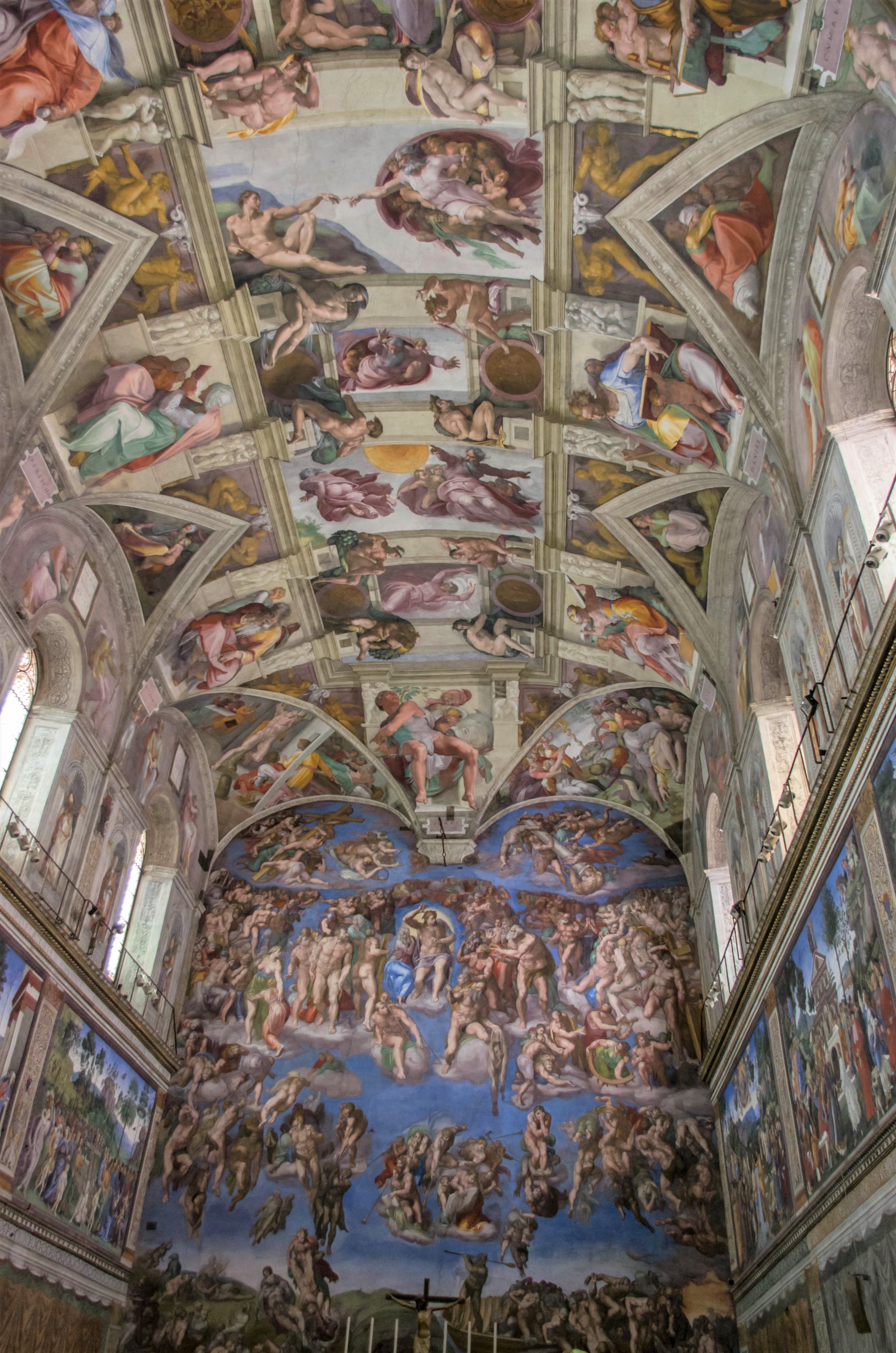
Sacred Art
08-16-2020Weekly ReflectionJen Arnold, M.A. in Theology and CatecheticsThere is nothing more beautiful than God. We can’t even fathom His beauty, as it is beyond our comprehension on this Earth. God is also a creator and everything He creates reflects His beauty. Since we are made in His image and likeness, we too are creators and are naturally inclined to re-create beauty. We are drawn to beautiful things and are repulsed by ugly things because the beauty of things elevates our hearts toward God. Whether it be through music, poetry, art, or nature, we can recognize beauty by the way it penetrates our souls and connects us to the perfect creator. There is nothing more beautiful than God. We can’t even fathom His beauty, as it is beyond our comprehension on this Earth. God is also a creator and everything He creates reflects His beauty. Since we are made in His image and likeness, we too are creators and are naturally inclined to re-create beauty. We are drawn to beautiful things and are repulsed by ugly things because the beauty of things elevates our hearts toward God. Whether it be through music, poetry, art, or nature, we can recognize beauty by the way it penetrates our souls and connects us to the perfect creator.
READ MORE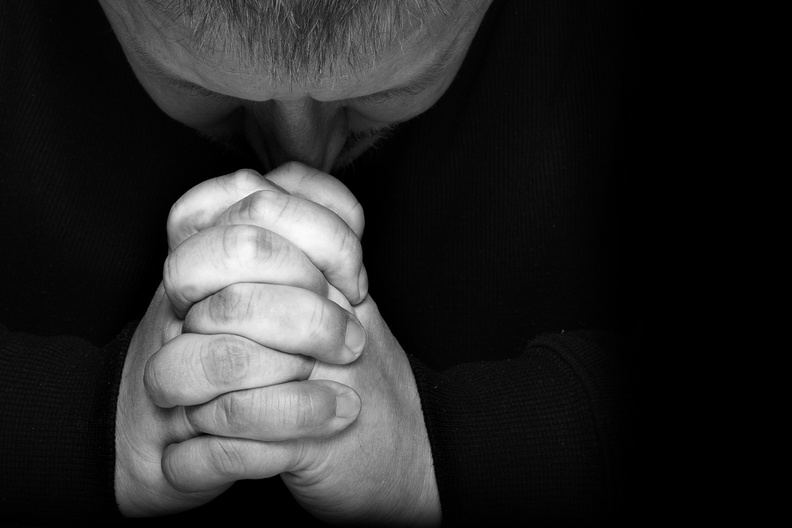
Sinners to Saints
08-09-2020Weekly ReflectionJen Arnold, M.A. in Theology and Catechetics“For a righteous man falls seven times, and rises again; but the wicked are overthrown by calamity.” - Proverbs 24:16
As we all know, we are all sinners. Our human nature causes us to make mistakes every single day as we sin against our neighbors and sin against God. It is just part of who we are. As Proverbs tells us, even the most righteous man will fall seven times. However, we should not become complacent about our sin and use our fallen nature as an excuse to not strive for holiness. Satan is the one who likes to tell us that we should just give up because we messed up one too many times, but Satan is a liar. Like the righteous man, we should always rise up again and try to do better because our good and gracious God tells us we can.
READ MORE
Love Your Enemies
08-02-2020Weekly ReflectionJen Arnold, M.A. in Theology and Catechetics“You have heard that it was said, ‘You shall love your neighbor and hate your enemy.’ But I say to you, Love your enemies and pray for those who persecute you…” (Matthew 5:43-44).
Jesus made a very clear and bold statement about how we are to deal with some of our least favorite people. We are to love them, but what does that look like, practically speaking?
Before we look at how to love our enemies, we have to define love. The world tells us that love is an emotion and that it feels good. Love is something that can be written about on a greeting card and it sounds great. We see people all around us fall in love and others who fall out of love, sadly resulting in the dissolution of marriages based on feelings. The Christian definition of love, however, is much different and not dependent on feelings at all.
READ MORE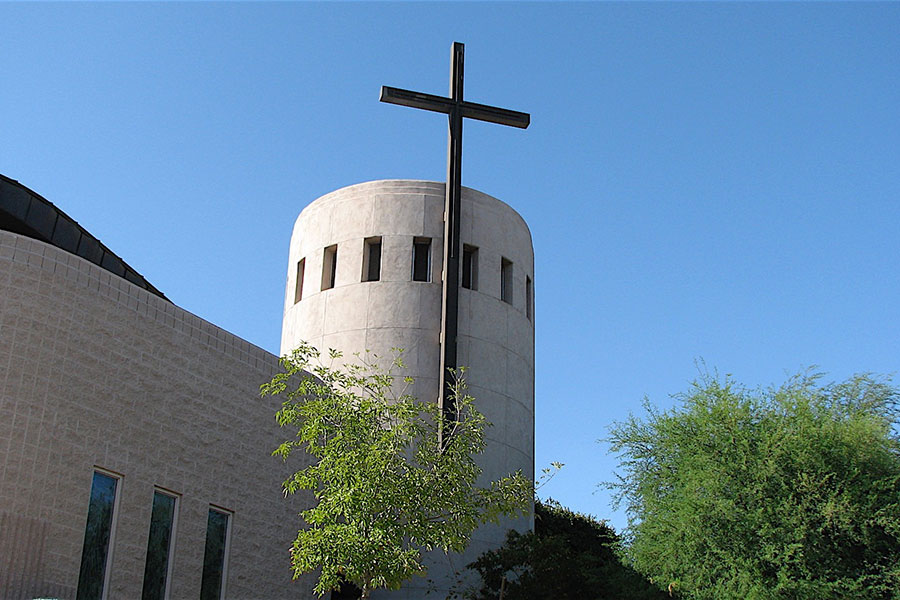
Overview of the Catechism of the Catholic Church
07-26-2020Weekly ReflectionJen Arnold, M.A. in Theology and CatecheticsYou have likely noticed that I reference the Catechism of the Catholic Church quite often when writing articles and reflections for the weekly bulletin. The Catechism is a book that can seem quite intimidating. First of all, it is a very big book. My version contains 904 pages. It is also filled with numbers, both at the beginning of each paragraph as well as in the margins, and there are tons of footnotes. There are numerous topics and it is difficult to know even where to begin. This week I would like to spend some time talking about this book, how to use it, and how it is a helpful and beautiful resource for Catholics wanting to know more about their Faith. You have likely noticed that I reference the Catechism of the Catholic Church quite often when writing articles and reflections for the weekly bulletin. The Catechism is a book that can seem quite intimidating. First of all, it is a very big book. My version contains 904 pages. It is also filled with numbers, both at the beginning of each paragraph as well as in the margins, and there are tons of footnotes. There are numerous topics and it is difficult to know even where to begin. This week I would like to spend some time talking about this book, how to use it, and how it is a helpful and beautiful resource for Catholics wanting to know more about their Faith.
READ MORE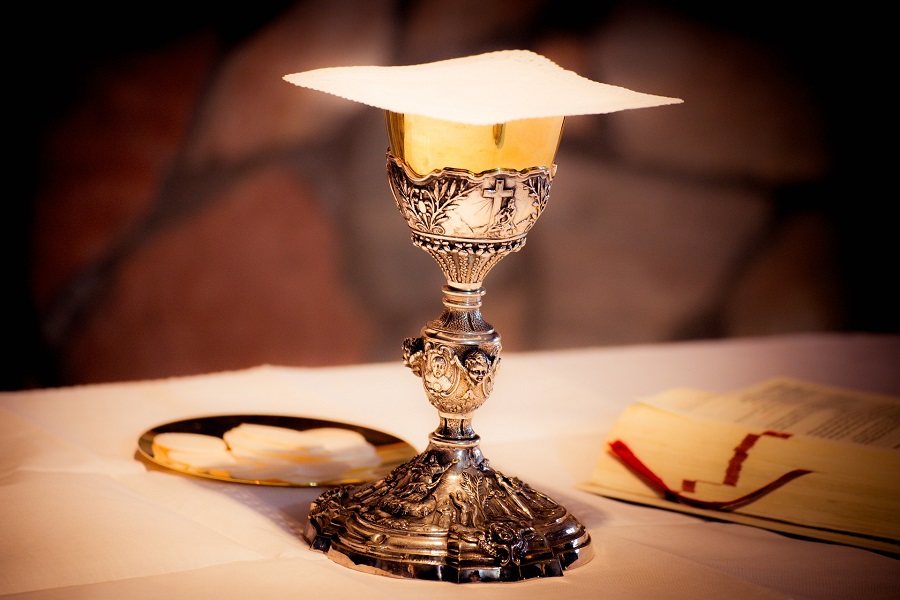
St. Thomas Aquinas’ Five Proofs
07-19-2020Weekly ReflectionJen Arnold, M.A. in Theology and CatecheticsIt is relatively safe to assume that if you’re reading this reflection, you likely believe in the existence of God. However, it is a very sad reality in our world today that many people do not believe in God. Some people equate belief in God and faith as fairy tales, mythology, or simply things we’ve made up to make ourselves feel better or less alone in the world. It is also sometimes misunderstood that faith and human reason cannot co-exist, but nothing could be further from the truth. Our human reason can, in fact, lead us to the truth which is then magnified by our faith.
The Catechism of the Catholic Church tells us that the desire for God is written on every human heart (CCC #27). We can see this in every person we encounter, whether they believe in God or not, and regardless of which religion or spirituality they practice (CCC #28). Everyone, in some way or another, is seeking truth and the meaning of life, however wayward it may seem to others. This is all driven by the desire God wrote into humanity to seek Him out, which is all largely rooted in our human reason.
READ MORE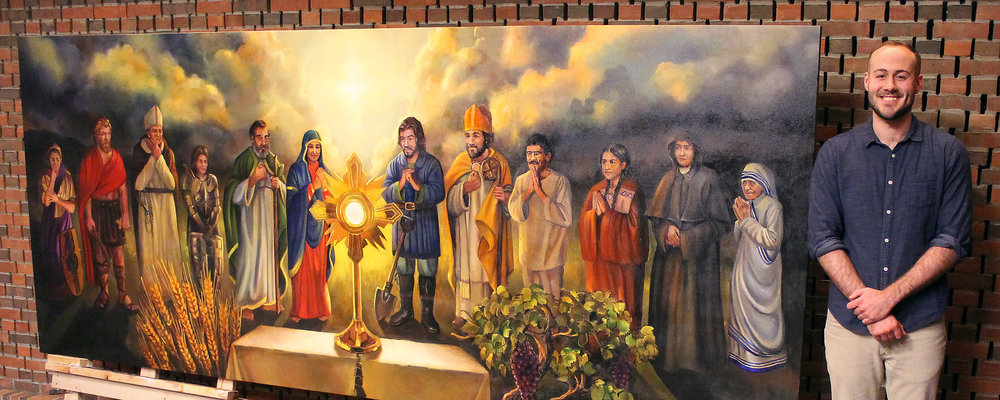
Saints
07-12-2020Weekly ReflectionJen Arnold, M.A. in Theology and CatecheticsOne of the things that stands out to non-Catholics about the Catholic Church is her veneration of saints, though this practice is often misunderstood. So, what does the Church teach us about saints and how they are there to help us?
First, we must differentiate between saints in general and those who are canonized. When we pray the Apostles’ Creed, we say that we believe in the “communion of saints.” We understand the communion of saints to be all members of the faithful, whether living or dead. This includes, of course, those in heaven, but also those in purgatory who are undergoing their purification process and on their way to heaven. We are all part of the communion of saints because we are all members of the mystical body of Christ and are, in fact, a communion under Him.
READ MORE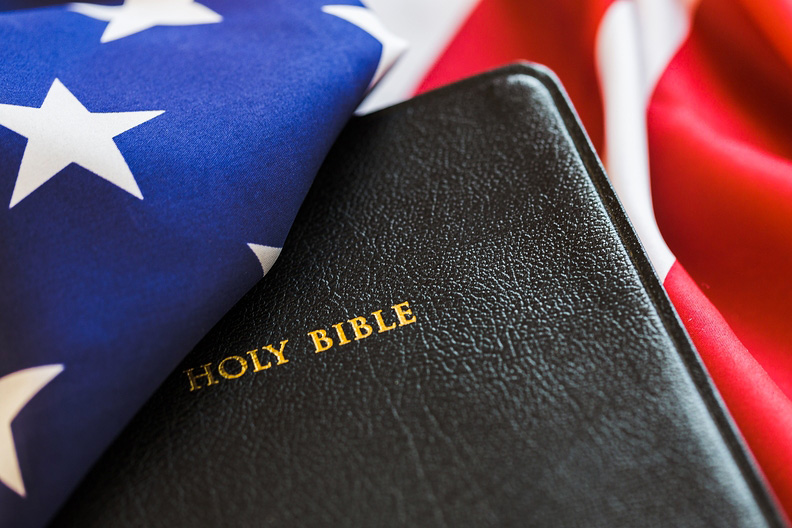
Free Will
07-03-2020Weekly ReflectionJen Arnold, M.A. in Theology and CatecheticsAs we celebrate Independence Day this weekend, I would like to take a closer look at what freedom means in the Economy of Salvation for us as Catholic Christians.
We live in a world today where freedom is misunderstood. Society dictates who is free to do what, when, and where based on whims, emotions, and popular opinions. A popular theme is “Hey, if I want to do X and it’s not hurting anyone, why not? I have free will.” You might also find that where you were free to say or do something one minute, you are all of a sudden no longer free to say or do that same thing. The truth is that we are all free to choose anything, but not without consequences and those consequences are really of the eternal order and not of the worldly one.
READ MORE